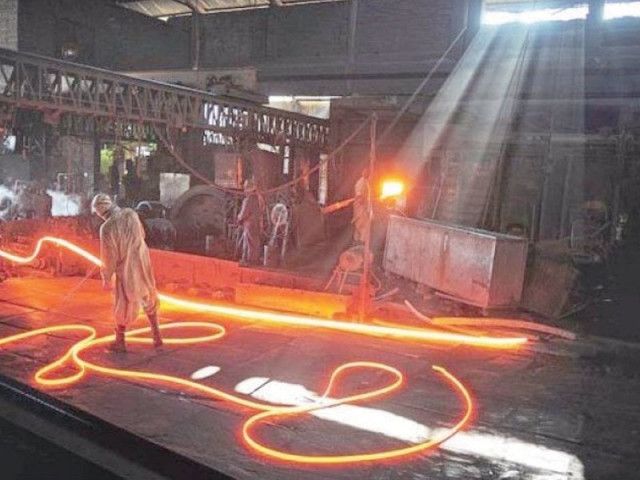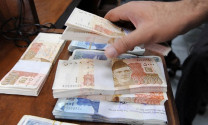Daunting challenges: Smuggling, duty theft sap investment in steel industry
When challenges are addressed, Aisha Steel will invest in capacity expansion.

Aisha Steel Mills, part of the Arif Habib Group, is one of the three steel mills in the country that produces Cold Rolled Coil. The mill, located outside Karachi, has the capacity to produce 220,000 tons annually. PHOTO: FILE
Every year, smuggling and import duty theft in the steel sector cause a loss of roughly Rs25-30 billion to the economy. This is one of the biggest reasons why domestic and foreign investment is limited and investors are hesitant to enter the steel industry of Pakistan, says chief executive of Aisha Steel Mills.
“The moment the government starts enforcing the regulatory framework or written agreements, our company will invest in capacity expansion to increase it by at least 50%,” Kashif Shah told The Express Tribune in an interview.
Aisha Steel Mills Limited (ASML) is part of the Arif Habib Group, one of the largest conglomerates in the country. ASML is a joint venture with two Japanese groups – Metal One Corporation, a majority-owned subsidiary of Mitsubishi Group, and Universal Metal Corporation.
ASML is one of the three steel mills in the country that produces Cold Rolled Coil (CRC) – flat steel sheets used in light and heavy engineering industry. The mill, located outside Karachi in the vicinity of Pakistan Steel Mills, has the capacity to produce 220,000 tons annually.
Shah does not demand any protection from the government, he only wants to have a level playing field to compete with steel importers, who, Shah says, save 10% customs duty as well as 16% sales tax through under-invoicing and mis-declaration of CRC.

“How can we compete with this strong mafia that supplies the same products, as we do, in the market by dodging 26% of duties and taxes,” he asks and underlines the need for the government to form a strong regulatory body that can cope with smugglers and the import mafia.
With just 42kg per capita consumption, Pakistan is among those countries that have very low steel consumption. Neighbouring India consumes twice as much while industrialised countries like the United States and Japan have an astoundingly high per capita consumption at over 1,000 kg.
Annual steel demand in Pakistan is stagnant at about 6.5 million tons, of which it produces around 4-4.5 million tons and the rest is imported.
Despite huge growth potential, the steel market has not expanded in the past two years because of an acute electricity shortage, says Shah. However, he adds, the industry can easily achieve a sustainable 5-6% annual growth if the government addresses energy woes and revive industries, especially the automobile industry – the main consumer of flat steel products.
In the auto sector, ASML currently sells its products to parts makers and hopes to start supplying to vehicle assemblers in the next one year.
Trade with India
Shah is not fearful about opening up of trade with India, stressing that the mill produces quality products that are on a par with international standards and match those from South Korea, Japan and China.
“We can compete with India both in quality and prices. Since India gives subsidies to its steel industry, Pakistan should see whether its exporters are getting a level playing field in India before opening up trade in steel,” he says.
Pakistan Steel Mills
Shah stresses that Pakistan Steel Mills, the only integrated steel mill that is producing all major types of steel products, is a national asset and its revival is critical for the economy.
“Even if the government decides to privatise PS, it should prefer some local group because that will give a big boost to the country’s economy,” he says.
Domestic groups have progressed a lot in the last one decade. Today, Pakistan has at least 8 to 10 groups that are capable of acquiring and running a big industrial complex like PS, he adds.
Published in The Express Tribune, June 4th, 2013.
Like Business on Facebook to stay informed and join in the conversation.



















COMMENTS
Comments are moderated and generally will be posted if they are on-topic and not abusive.
For more information, please see our Comments FAQ